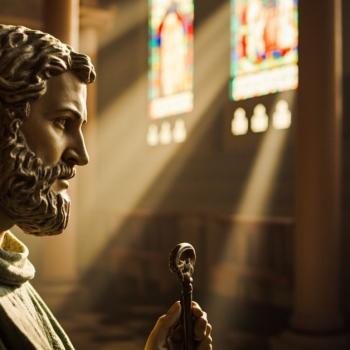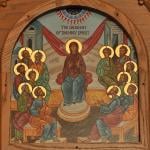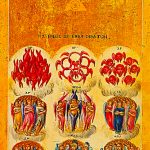First, some flattery:
I actually was at ChesterCon Seattle ’09, and got your “By What Authority?” from you in person. It was awesome. It’s helped me along two main lines:
a) Pushing me further away from a ‘sola scriptura’ viewpoint of the nature of Scripture and Tradition
b) Helping to assure me in a time of doubt regarding the person of Jesus in history (further development of the notion that oral tradition doesn’t just pop out of thin air)Second, a question:
I read the recent article on Inside Catholic, about sacred cultural stories. I loved it; awesomeness, as seems to be your usual. But why is predestination in the list at the end? It does seem to be part of the deposit of the faith, though not at all in the Calvinist sense.
And if if isn’t, I’m confused as to why there are references in the Council of Trent to the predestinate, specifically a predestinate that we should not be certain will actually include us. I do believe I first ran across them in Dave Armstrong’s “A Biblical Defense of Catholicism.” The quotation that seems relevant, from the site that came up:CANON XV.-If any one saith, that a man, who is born again and justified, is bound of faith to believe that he is assuredly in the number of the predestinate; let him be anathema.
Now I am more than aware that the Roman Catholic Church teaches a form of predestination that is in line with human free will (as it should be), but it is predestination nonetheless. So to list it as a thing that a Catholic shouldn’t claim that Catholics should believe strikes me as a tad strange, because it seems to me that it’s part of the deposit of the faith. I realize this might seem awfully nitpicky of me, but as a Christian it is my concern that if we desire to excise the word predestination from our (Christian in general, or Catholic
specifically) tradition, this will create problems when it comes to interpretation of passages that speak to it as a reality. Thus it does not seem to belong on your list of things that are non-essential cultural matters that sometimes get elevated to the status of sacred tradition.
Yeah, you’re probably right. I wasn’t writing with any great precision and probably should have said “predestinarianism” (which more or less expands a particular bit of the Tradition to take the place of the Tradition itself). Technically, I suppose we could call that a “heresy” rather than a “human tradition” since it consists of exaggerating some piece of the Tradition rather than exaggerating merely human tradition. My general thrust was “Don’t replace the Great Thing with lesser things.” But you’re right: One of those lesser things was not like the others. Good catch!
Thanks for your flattery. Always nice (albeit it, dangerous) to hear!















